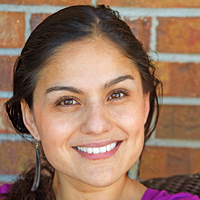 IBCLC Detailed Content Outline: Psychology, Sociology, and Anthropology Focused CERPs - Section V
IBCLC Detailed Content Outline: Psychology, Sociology, and Anthropology Focused CERPs - Section V
Access CERPs on Psychology, Sociology, and Anthropology for the IBCLC Detailed Content Outline recertification requirements. Enjoy convenient on-demand viewing of the latest Psychology, Sociology, and Anthropology focused IBCLC CERPs at your own pace.
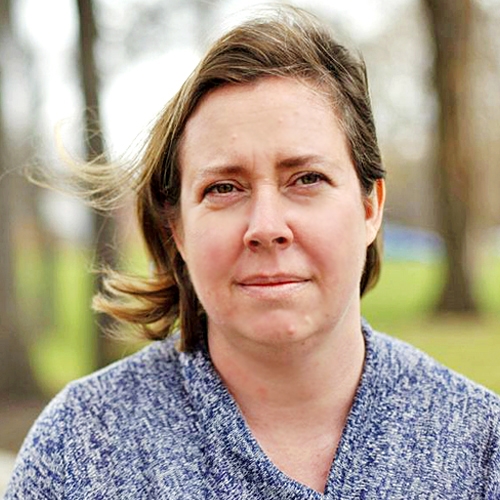
Facilitated Discussion on IYCF-E and the Role of the Lactation Professional

Michelle Pensa Branco MPH IBCLC is a lactation consultant and public health advocate. In addition to her clinical practice, which has included in-hospital, outpatient and private practice settings, she advocates for improved maternal-child health practices at the local, national and global level. She has a particular interest in the impact of trauma to breastfeeding families, models of peer support to improve breastfeeding outcomes and the application of health communication principles to the promotion and protection of breastfeeding. Michelle serves as the Director of Peer Support Programs and provides clinical lactation expertise for Nurture Project International, the only international NGO focused exclusively on infant feeding in emergencies. With Jodine Chase, she co-founded a Canadian non-profit organization, SafelyFed Canada. She is also an active member of the Ontario Public Health Association’s Breastfeeding Promotion Working Group. Michelle has previously served as the Vice-Chair of La Leche League Canada, the Communications Director for the Canadian Lactation Consultants Association as well as the Toronto Coordinator of INFACT Canada. When she is not travelling for work, Michelle stays close to home, living with her family just outside Toronto, Ontario, Canada.
Topic: Keeping the Fox Out of the Chicken Coop: Safeguarding Your Reputation Against Baby Feeding Industry Influence - [View Abstract]
Topic: Playing Well with Others: Collaborating in High Conflict/Low Trust Settings - [View Abstract]
Topic: Watching Our Words: Is Risk-Based Language Always the Right Choice? - [View Abstract]
In emergencies, breastfeeding saves lives - and yet, regardless of the location or type of disaster, breastfeeding and complementary feeding practices are eroded during an emergency. Infant and young child feeding in emergencies (IYCF-E) requires a multi-sectoral approach to meet the needs of both breastfed and non-breastfed children. Where do the skills of breastfeeding counsellors, educators and IBCLCs fit into the IYCF-E response? What competencies do IBCLCs need to provide clinical care in a humanitarian setting and how can IBCLCs obtain those (if they don’t already have them)? Bring your thoughts, experiences and questions and join us for a facilitated discussion about the role of skilled breastfeeding support in protecting infants and young children in emergencies.
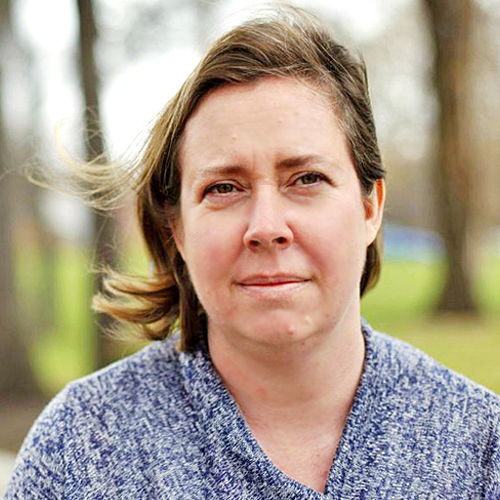
View Details / Enroll
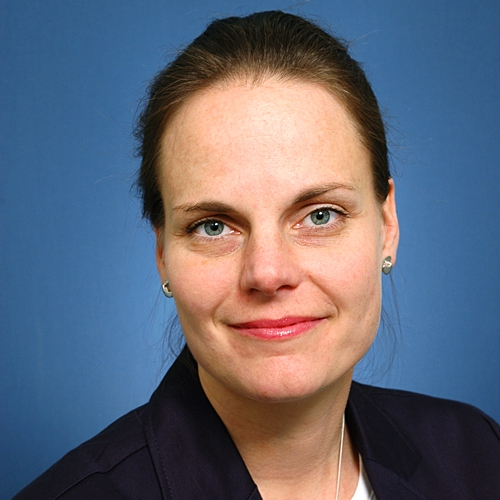

Anna Axelin’s academic career has included conducting quantitative and qualitative research on maternity and neonatal care in multidisciplinary and international research groups. In the Academic year 2011-2012, she joined the faculty of Department of Family Health Care Nursing in University of California San Francisco for her post-doctoral research. Since 2018, she was appointed as an associated researcher in the Department of International Maternal and Child Health at University of Uppsala in Sweden. In addition to the academic career, she has ten-year working experience as a NICU nurse.
She is leading the Health in Early Life and Parenthood (HELP) research group which aims to promote health and welfare in the early stages of life. Her special research interest is how to keep parents and sick newborns together throughout the infant hospital stay and strengthen their relationship already during pregnancy. Anna Axelin’s other research interests include pain and sleep in neonates, and the implementation of evidence-based practice in maternity and neonatal care with the help information technology.
Infants should not be separated from their parents. Parent-infant closeness is vital for the development of parent-infant relationship and consequently for parental well-being and optimal infant development. However, every year, due to medical care or hospital routines detrimental separation affects millions of infants. This presentation explores parents’ and staff’s perceptions of infant-parent closeness and separation in maternity care, delivery ward and neonatal intensive care environment. Based on these experiences, barriers (e.g. care routines and resources) and facilitators (e.g. patient centered communication skills, parent autonomy, single family rooms and couplet care) for closeness will be examined and potential strategies to facilitate parent-infant closeness in neonatal care are discussed.

View Details / Enroll

Family Centred Midwifery Care in Practice

First and foremost I am a mother, wife and latterly grandmother, my personal life has always largely informed my practice and I am always careful to remember that the women I meet are also like me in that they belong to a family.
I am a freelance consultant midwife one of the first in the UK and formerly employed at 2 very large and diverse maternity units. My career started in the 1970’s in nursing however midwifery was always my ambition and particularly the nurturance of midwifery led care.
I am a practicing psychotherapist interested in the emotional impact of childbirth; in part due to my own mothering experiences and research. I have worked closely with women to understand this phenomenon and researched emotional transition to motherhood.
Raising awareness for maternal mental health and particularly women surviving sexual abuse, I co-founded Sanctum Midwives campaigning on maternity care and sexual abuse. I have worked for many years raising awareness around the issues of maternal mental health and supporting both women and all those who work in maternity care situations. I believe positive mental health is the cornerstone to mothering and self fulfilment.
I have published widely in peer review journals but also in many books. My latest publication is ‘Understanding Anxiety, Worry and Fear in Childbearing Women’ which I edited and wrote 4 chapters. I am currently writing on the issues of child and adult female sexual abuse and its implications.
I care very deeply about women and their babies that they may come through their pregnancy and birth unharmed. I will continue to do this for the sake of midwives everywhere.
In 2016 National Health Service (NHS) England produced a report that is to be ground breaking in its ambitions and is part of the NHS Long Term Plan. The review team spent a whole year meeting with families, midwives, obstetricians and voluntary sector groups. This review team was led by Baroness Cumberledge, she understood the issues and was able to steer this work to its most important conclusion – personalised care centred around the woman and her family gives the best physical and psychological outcomes. The vision for maternity services across England is for them to become safer, more personalised, kinder, professional and more family friendly; where everywoman has access to information to enable her to make decisions about her care; and where she and her baby can access support that is centred around their individual needs and circumstances. If a small group of midwives managed the care of the woman, near to her home and she has access at all times to the information, choices about her birthing options then the benefits were huge. A reduction in premature birth, reduction in stillbirth, less risk of perinatal illness and of course reduction in maternal deaths. This is the reality for maternity services and now we are partway through implementation. I will present some of the realities for this model and the benefits for women and their families.

View Details / Enroll

Father Inclusive Prenatal Care: Coparenting Support for Expectant Fathers and Mothers

Paul Florsheim is a professor of public health at the University of Wisconsin Milwaukee and a Clinical Psychologist. He received his BA in History from Wesleyan University, an MA in Social Sciences from the University of Chicago, and a PhD in Clinical Psychology from Northwestern University. Dr. Florsheim’s research interests include public health approaches to supporting the development of adolescents and young adults, with a particular focus on healthy relations and the prevention of mental illness. He teaches courses at the that intersection of mental health and public health, including workshops on supporting young parents across the transition to parenthood. Dr. Florsheim has published over 50 journal articles and three books, including "Lost and Found: Young Fathers in the Age of Unwed Parenthood" and "The Young Parenthood Program: A Guide to Helping Young Mothers and Fathers Become Effective Co-parents, both published by Oxford University Press. Among his current research/intervention endeavors, Dr. Florsheim is co-directing the Father Inclusive Prenatal Care study in Chicago, which is funded by the Administration for Children and Families.
Father Inclusive Prenatal Care (FIPC) services are designed to provide expectant fathers with co-parenting support and parent education to help assure a successful transition to parenthood. We know that children are more likely to thrive when fathers are positively engaged in child-rearing. The two fundamental premises of the FIPC model are that: (1) many new fathers need support to successfully meet the interpersonal and psychological challenges of parenthood; and (2) prenatal clinics are well situated to address this need by expanding services to include expectant fathers. The FIPC approach begins with an engagement process that underscores the developmental significance of fatherhood, identifies what each father needs to prepare for parenthood, and tailors services to address those needs. The components of the FIPC program include communication skill building, psychoeducation about newborn care, and psychological support to help young men and women develop their identities as parents. This presentation will be delivered in three parts. Part one introduces the FIPC model, describing the step by step process of program delivery. Part two uses case material to demonstrate how to tailor FIPC services to individualized needs. Part three briefly describes ongoing research that supports the efficacy of the FIPC model.


Dr. Kelly McGlothen-Bell is an Assistant Professor at UT Health San Antonio, School of Nursing. As a nurse scientist, Dr. McGlothen-Bell is dedicated to understanding and resolving perinatal-infant health disparities in underrepresented groups, particularly among mother-infant dyads impacted by substance use disorders and preterm births. Dr. McGlothen-Bell uses interdisciplinary research, bio-behavioral methodologies, and community-engaged strategies to define and explore health priorities that can be remedied through culturally appropriate and sustainable health solutions. Her program of science focuses on understanding the relationship between infant feeding behaviors and readiness in high-risk infants and attunement between the primary caregiver and child during infancy and toddlerhood. The culmination of these findings contributes to the development of evidence-based interventions geared toward improving parental engagement and pediatric feeding success in marginalized populations. Dr. McGlothen-Bell has published numerous peer-reviewed articles related to developmental strategies for high-risk infants. She has also presented her work at conferences nationally and internationally. Dr. McGlothen-Bell has received numerous awards to include the 2019 National Association of Neonatal Nurses (NANN) Mentee/Mentor Grant Award. She was also selected as a 2019-2020 Academy Jonas Nurse Policy Scholar.
Topic: Feeding Behaviors in the Opioid Exposed Infant - [View Abstract]
As national rates of opioid use disorder continue to rise, the resulting impact on pregnant and parenting women and their children is immense. Severity of the central nervous system and gastrointestinal irritability in infants following prenatal opioid exposure, can affect their feeding behaviors and subsequently the caregiver-infant relationship. Feeding is a regulatory process that is difficult to characterize in prenatally opioid-exposed infants. As a result, caregivers, most often the mother, may struggle with feeding their infants. The complexity of an opioid use disorder for the mother and the subsequent opioid withdrawal of the infant may impede a mother’s ability to engage her irritable or sleepy baby.
Despite the known importance of feeding as a growth-fostering process, the evidence is lacking to guide recommendations for feeding management in this at-risk population. Evidence-based observational tools specific to the target population are warranted. Furthermore, feeding interactions between opioid- exposed infants and their caregivers need appropriate assessment and intervention to not only assist with the infant’s regulation and development of feeding skills, but also to support a nurturing feeding relationship. This presentation will shed new light on this important issue in infant feeding and highlight emerging research in the area.

First Touch, First Food, First Hour …in a mother’s hands

Dr. Jane Morton has had a long, fulfilling career as a general pediatrician, She has also had a long-standing interest in breastfeeding, from understanding its clinical benefits to practical solutions for mothers having difficulty in providing breastmilk to their infants. Over the years, she has conducted research on human milk and breastfeeding and has designed and implemented systems and policies to help breastfeeding mothers. She produced award winning videos on this topic, including “Breastfeeding: A Guide to Getting Started”, “A Preemie Needs His Mother: Breastfeeding a Premature Baby” and “Making Enough Milk, the Key to Successful Breastfeeding”. These have been translated and widely used in thousands of hospitals to train both staff and new mothers. As an executive board member of both the Academy of Breastfeeding Medicine and the American Academy of Pediatrics Section on Breastfeeding, she enjoyed working to enlarge the footprint of breastfeeding, both nationally and internationally.
For a 5 year period, she joined the neonatology clinical faculty at Stanford to develop the Breastfeeding Medicine Program. In that position, she had the opportunity to design a nationally recognized educational program, conduct and publish original research on milk production and composition in mothers of very low birth weight infants, and publish a study with the AAP on the efficacy of a breastfeeding curriculum for physician residents in training. She was an advisor to the California Perinatal Quality Care Collaborative, and was a key author of the toolkit “Nutritional Support for the Very Low Birth Weight Infant”. She co-authored the book Best Medicine: Human Milk in the NICU. She has published extensively and presented her original research and educational workshops internationally. She continues to teach at Stanford where she is an Adjunct Clinical Professor of Pediatrics, Emerita.
Topic: First Touch, First Food, First Hour …in a mother’s hands - [View Abstract]
The risk of early termination of breastfeeding typically relate to complications with a) attachment, b) breastmilk production, or c) the caloric intake of the infant. Simply put, A, B and C. Could hand expression taught in Labor and Delivery to every mother reduce early termination and the health, financial and emotional morbidity associated with breastfeeding complications in both low and high risk infants? This presentation will examine this question, focusing on the purpose of teaching early hand expression, the available science and the practice of integrating this technique into first hour care.

Foetal Programming and the Impact of Stress

Dr. Ruth Oshikanlu MBE is a multi-award winning nurse, midwife and health visitor. A nurse entrepreneur, consultant, leader and parenting expert, she is passionate about supporting vulnerable children and their families to reduce health inequalities and improve their life outcomes. Her previous roles include: HIV specialist midwife, Family Nurse at one of the first pilot sites of The Family Nurse Partnership intensive home visiting parenting programme for vulnerable families, and Nurse Leader of The Lewisham Young People’s Health and Wellbeing Service.
Ruth is a Pregnancy Mindset Expert and supports pregnant women who have had assisted conception or previous pregnancy loss. She is the author of Tune In To Your Baby: Because Babies Don’t Come with An Instruction Manual.
Ruth is a Queen’s Nurse, Fellow of The Institute of Health Visiting, Royal College of Nursing and The Royal Society of Arts. She is the recipient of several national healthcare and business awards; a regular columnist and has published several feature articles in numerous national nursing and healthcare journals.
Ruth was appointed a Member of the Order of the British Empire (MBE) in the New Year 2019 Honours List for being an Ambassador for the Health Visiting Profession and for services to Community Nursing, Children and Families. She is a Churchill Fellow and was awarded an honorary doctorate degree from London South Bank University in November 2019.
Topic: Foetal Programming and the Impact of Stress - [View Abstract]
Foetal programming refers to changes in the environment in utero during specific critical or sensitive periods and the long-term effect on the child. Maternal stress and anxiety during pregnancy represents an important aspect of the intrauterine environment and can alter the development of the foetus and child and can influence many, if not all, developmental outcomes. The presentation will explain what foetal programming is, why it matters and discuss how stress impacts it. It will discuss the importance of building therapeutic relationships with clients and their families. It will conclude with the tools and strategies to equip professionals who work with women, children and their families to better support them in pregnancy and the first three years of life.
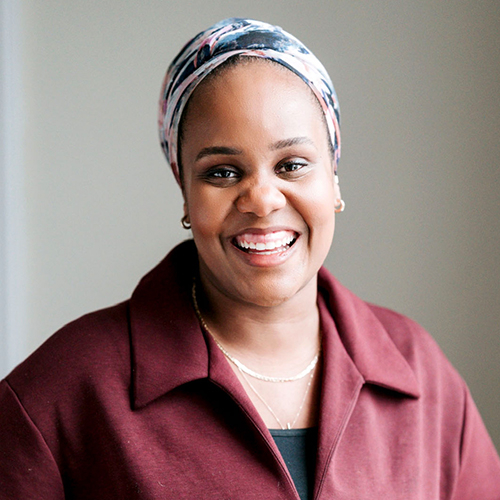

Illiyin Morrison is a dedicated midwife, author, and the visionary owner of Mixing up Motherhood, an empowering platform for mothers. With a passion for supporting women during their childbirth journeys, Illiyin brings a wealth of knowledge and experience to her work. Her book, "The Birth Debrief," offers a compassionate guide for mothers, families and partners to navigate the complexities of perinatal experiences, providing insights and tools to process and heal.
Illiyin's unwavering commitment to maternal well-being extends beyond the birthing space. Through Mixing up Motherhood, she advocates for comprehensive postpartum care, destigmatizing mental health challenges, racism and unconscious bias and fostering a supportive community for all mothers and families. Her advocacy work emphasizes the importance of self-care, self-acceptance, and embracing the transformative journey of motherhood.
As a midwife, author, and influential figure, Illiyin Morrison continues to inspire and empower mothers, creating a positive impact on their lives and the broader maternal health landscape. Her dedication to enacting change and nurturing the well-being of women shines through in all aspects of her work.
Wanting to be heard is a normal human need. This need to be listened to, validated and understood is especially strong when a birth does not go the way the birthing parent had hoped. When parents do not feel seen, it can lead to trauma that can have a powerful impact during the vulnerable period after birth. This presentation explores the importance and nuances of debriefing following a traumatic or difficult perinatal experience.
Highlighting causes of trauma, importance of trauma informed care, the value of debriefing as well as discussing the risks of trauma and the contributors to perinatal trauma and how they can be avoided. Included are tips on reflection including how to, when and with whom, along with advice on when and how to signpost and discussion around debriefing for healthcare professionals.

From Distressed to Regulated: A Holistic Way to Comfort the Unsettled Baby

Carol Smyth is an IBCLC and Cognitive Behavioural Psychotherapist working in both Primary Care and in private practice in Northern Ireland. With a background in psychology she is driven by a passion to promote attachment based and trauma informed care to families and babies. She is the author of the Why Infant Reflux Matters book, both an HCP education resource and a self-help book for families worried about their baby’s reflux and unsettled behaviours. When working with parents she aims to increase understanding of normal (often misunderstood) baby behaviours and to explain why these are often different from what we expect. This understanding helps to lower parental anxiety and promotes attachment strategies proven to reduce crying.
Topic: What Does Breastfeeding Mean for Fertility? - [View Abstract]
Unsettled behaviour in the early weeks and months of a baby's life is a common reason for presentation to a healthcare provider. Parents have worries about reflux, allergies, colic and pain. The distress and worry can also be associated with mental health difficulties in the caregiver(s), such as anxiety and depression.
Parents often eliminate foods or trial medications without clear indications due to their perception of their baby's pain and distress. Managing the healthy but unsettled baby involves taking a holistic view of unsettled behaviours shaped by an understanding of neurodevelopment, family dynamics and caregiving practices, and evidence-based interventions. This presentation will review the research on neurodevelopment and the distress curve, reasons for crying, and what we know about how to reduce distress.
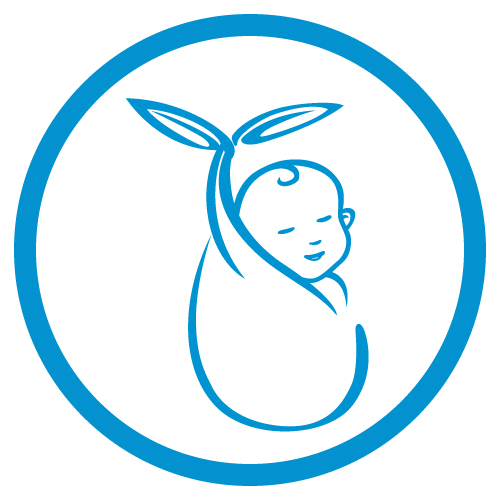
View Details / Enroll


Paulina is the mother of three multicultural Latino children and Project Director for Lifespan Local. Paulina earned her BS in Psychology from the Pennsylvania State University, a MS in Organizational leadership from the University of Denver and is completing her PhD in Health and Behavioral Sciences at the University of Colorado - Denver. Paulina has over 18 years of experience working with families with young children. As a Maternal Child Health specialist for Jefferson County Public Health, she developed a NICU follow-up home visitation program and the pediatric emergency preparedness plan, co-founded and coordinated the Conectando Network (former Adelante Jeffco), established community navigation and lactation support groups focused on the Latino Spanish speaking community, and lead other initiatives to support leadership and partnerships among communities and organizations. During the COVID-19 pandemic, she managed the new program Whole Community Inclusion to ensure the pandemic response and recovery implementation included health equity practices that recognize the needs and the strengths of priority populations in the county. Her areas of current work include promoting perinatal and infant mental health along the continuum of care; building community capacity to navigate health and education systems; facilitating organizational change to embrace linguistic and culturally responsive practices; and establishing community-placed participatory programs to strengthen communities. She likes to be with people, learn from and with others, and connect passions for meaningful work.
Topic: From the NICU to the home: mother’s experiences - [View Abstract]
Topic: Leadership Skills in Lactation: Make Extraordinary Things Happen - [View Abstract]
Topic: Liderazgo en Lactancia - Para Alcanzar Metas Extraordinarias - [View Abstract]
Topic: Nursing A Preemie, Perspectives For Lactation Supporters and Professionals - [View Abstract]
Lactation consultants would benefit from expanding their understanding of the impact of the NICU stay on the family; moreover, they would benefit from identifying the essential role they could play in assisting families to accomplish a positive, healthy, and smooth transition home.
Despite continuing efforts to reduce prematurely worldwide, a significant number of infants are born too early or in a fragile medical condition. Many of these infants experience a lengthy stay at the NICU. Lactation support varies across facilities, but families, especially mothers, develop strong connections with their lactation consultant. As one of their most consistent providers in the NICU, the lactation consultant has the opportunity to recognize families’ need for continuing support after discharge and strategies to protect the breastfeeding relationship, attachment, and mental health in the long term.

View Details / Enroll









